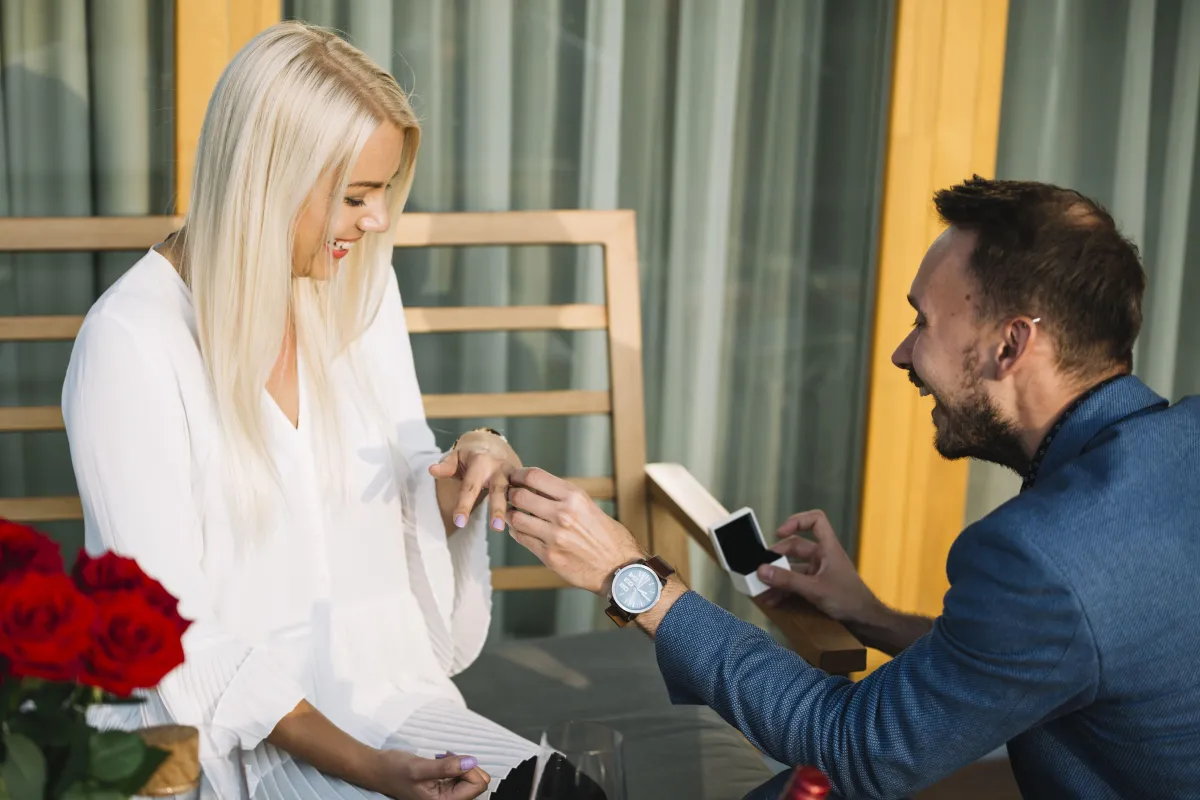Divorce Is Hard: Why It Hurts So Much and What You Can Do About It

Introduction
If you typed “divorce is hard” into Google, chances are you’re in pain.
Maybe you’re curled up on the couch, staring at a quiet home that doesn’t feel like home anymore. Maybe you’re functioning on the outside—but crumbling inside. Or maybe you just need someone, anyone, to tell you that what you’re feeling is normal.
Let’s start here: Divorce is hard because it hurts. And that hurt is valid.
This isn’t a “10 tips to move on” kind of article. This is a space to exhale. To understand why divorce feels like such a wrecking ball—and how, slowly, gently, you can begin finding solid ground again.
We’ll talk about:
Why this pain is so heavy
The emotional challenges you might be facing
How to cope when it feels unbearable
What healing could look like—even if you're not there yet
You're not alone. You're not broken. You're grieving.
Why Divorce Feels So Hard
You’re Losing More Than a Partner
You’re not just ending a relationship. You’re losing:
A shared identity
A sense of emotional safety
Daily routines—morning coffee, texts, weekend rituals
A future you thought was certain
“Divorce is the death of a future you planned.”
This is why it hits so deeply. It’s not just the person—it’s the life you built around them.
It Feels Like a Personal Failure (Even If It’s Not)
Society teaches us that lasting relationships = success. So when a marriage ends, it can feel like you failed—even if you did everything you could.
The truth?
Sometimes love changes. Sometimes people grow apart. And that doesn’t make you a failure.
You’re Grieving Someone Who’s Still Alive
One of the strangest parts of divorce grief is that your ex might still be around:
Co-parenting
Showing up on social media
Moving on while you're still shattered
It’s like mourning someone who’s alive—and still visible. The emotional dissonance can be unbearable.
Stat: Nearly 20% of divorced people experience major depressive symptoms post-divorce
(Source: American Psychological Association)
Common Emotional Challenges That Make Divorce So Difficult
Emotional Whiplash
You may feel:
Sad in the morning
Angry by noon
Guilty by 3 PM
Hopeful at dinner
Numb by bedtime
This emotional rollercoaster is exhausting—but it’s also normal.
Grief doesn’t follow a schedule. It surges. It stalls. It loops.
Social Isolation and Stigma
Divorce often comes with silence. Friends don’t know what to say. People choose sides. Or worse, they disappear altogether.
You might feel like:
You're the only one going through this
You're being judged
You can’t talk about it without making people uncomfortable
Please know: there is nothing shameful about hurting.
Fear of the Unknown
“What now?”
“Will I ever love again?”
“How do I survive financially?”
“Who am I without them?”
These fears are valid. And while they can feel paralyzing, naming them helps reduce their power.
Try this: Write down your top 3 fears. Say them out loud. You don’t need to solve them today—just acknowledge them.
How to Cope When Divorce Feels Unbearable
Let Go of the “Shoulds”
“I should be over this by now.”
“I should be stronger.”
“I should have seen it coming.”
These internal narratives are cruel, and they aren’t helping you heal.
Try replacing them with:
“I’m doing my best.”
“I’m allowed to hurt.”
“This pain is part of my process.”
Create Safe Spaces to Fall Apart
You don’t need to hold it together all the time.
Find private spaces where you can:
Scream
Cry
Write unsent letters
Talk to yourself in the mirror
Record voice notes when the pain swells
You don’t need to explain your grief to anyone but yourself.
Focus on Micro-Wins
Some days, surviving is enough.
You got out of bed.
You fed yourself.
You answered one text.
That’s not failure—that’s resilience in motion.
E-A-T Tip: Trauma-informed therapists can help you process grief in safe, supported ways. Consider online platforms like Rebuilders International.
What Healing Might Look Like (Even If It’s Not Here Yet)
The Pain Doesn’t Disappear — It Transforms
One day the pain will feel:
Less sharp
Less all-consuming
More like a scar than an open wound
You’ll still remember. But it won’t break you anymore.
You’ll Start to Feel Okay Without Realizing It
Healing sneaks in like this:
You laugh, and it doesn’t feel like betrayal
You go hours—then a day—without thinking of them
You notice a sunrise, a song, a small joy
And slowly, life starts to expand again.
“Healing doesn’t mean the damage never existed. It means it no longer controls your life.” — Unknown
Final Words: You’re Not Weak — You’re Human
It’s hard because you cared.
It’s hard because it mattered.
It’s hard because you loved.
You don’t have to have it all figured out.
You just need to know this:
You will not feel this way forever.
You are not broken—you are becoming.
Related Posts

When to Start Dating Again: Signs You’re Ready
After divorce, the idea of dating can feel like stepping into a storm—exciting, but scary. You might wonder if you’re ready or if it’s too soon to try. At Rebuilders International, we’ve spent over 40 years helping people find clarity with our proven approach, backed by the Fisher Divorce Adjustment Scale (FDAS). This isn’t about rushing into love—it’s about knowing you’re ready to connect authentically. Here’s how to spot the signs and take that step with confidence.
Why Timing Matters for Dating
Jumping into dating too early can stir up old wounds, but waiting forever might mean hiding from life. Friends might nudge you to “get back out there,” but readiness isn’t about a calendar—it’s about your heart. Our method, tested by thousands, shows that dating works best when you’re grounded in yourself. The FDAS, with its .93 reliability, proves emotional clarity makes all the difference. Let’s explore the signs you’re there.
5 Rebuilders Signs You’re Ready to Date
These signs, drawn from our 10-week workshop, use our unique tools to help you know when you’re ready, rooted in trust and self-awareness:
You’re Done with “What Ifs”
If your mind’s no longer stuck on “Why did it end?” or “Could I have fixed it?” you’re moving forward. Our free self-test checks your disentanglement score—high scores mean you’re free from past loops. A group member said, “I stopped replaying the past and started seeing the future.” This clarity, like our thinking-phase work, shows you’re ready for new connections.You Feel “I Am Enough”
Dating from a place of lack invites old patterns. Our core belief? You’re a “gem,” whole as you are. If you can say, “I am enough,” and mean it, you’re on solid ground. A woman in our support group said this gave her confidence to chat without needing approval. This self-worth, tied to our identity tools, is a green light for dating.You Enjoy Your Own Company
If alone time feels peaceful, not lonely, you’re likely ready. Our groups teach that liking yourself is the foundation for liking someone else. One client said rediscovering solo hikes made him excited to share that joy. Check your self-test’s self-worth score—strong numbers here mean you’re not dating to fill a void, a key from our identity phase.You Trust Your Boundaries
Readiness means knowing what you want—and what you won’t accept. Our exercises, like listing your “must-haves,” help you set clear boundaries. A man in our online groups said this stopped him from chasing unhealthy matches. If you feel confident saying “no” kindly, our relationship-phase work shows you’re prepared to date.You’re Curious, Not Desperate
If you’re excited to meet someone new—not to fix your life, but to share it—you’re in the right headspace. Our “needs check-in” tool asks, “What do I want?” A participant said feeling curious about a date’s story, not their “potential,” was her sign. High social trust scores on our self-test signal you’re ready to connect from care, not need.
Dating on Your Terms
Knowing when to start dating again is about trusting yourself, not checking a box. Our structured approach has helped thousands since 1974, with workshop completers since 2021 showing stronger social trust via FDAS scores. You can step into dating with clarity too, one honest moment at a time.
Need Clarity? We’re Here
Figuring out if you’re ready can be tricky, but our programs—online, in-person, or self-paced—offer tools and a community to guide you. Visit our homepage or book a free clarity call. Want to start small? Join our free support group Tuesdays online.
You’re Ready When You Say So
You’re built for connection on your own terms. What’s one sign you’re noticing in yourself today? Share below—we’re cheering for you!


